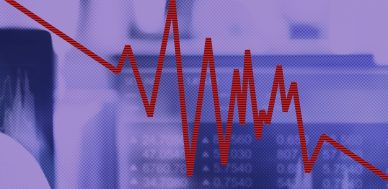Global Economy Taking a Wrong Turn
The global economy has been slowing down, and the next few quarters could be very critical. An extended and severe global economic slowdown could trigger a sell-off in the stock market, increase the odds of a financial crisis, and cause central banks to enact wild shifts in their monetary policies. Beware: your investments could be on the line.
Major economic hubs have been reporting dire economic data.
For instance, Germany’s federal statistics office recently reported that the biggest economy in Europe shrank in the fourth quarter of 2022. Germany’s gross domestic product (GDP) declined by 0.2% on a quarter-over-quarter basis. This was a surprise to many. (Source: “German Economy Unexpectedly Shrinks in Q4, Reviving Spectre of Recession,” Reuters, January 30, 2023.)
The U.K. economy has also been going through a rough patch. The International Monetary Fund (IMF) recently downgraded the country’s economic outlook, expecting the U.K.’s economy to contract by 0.6% in 2023. (Source: “IMF Downgrades UK Growth Forecast, Predicting Only Economic Decline Among G-7 Countries,” CNBC, January 31, 2023.)
The IMF’s head of research, Pierre-Olivier Gourinchas, provided three reasons why the U.K. is headed toward problems: the country’s economy is highly exposed to natural gas (its high price has been hitting consumers), the country’s job market conditions remain uncertain, and the Bank of England has been intensely tightening its monetary policy.
In Japan, manufacturing activity contracted for a third consecutive month—and exports weakened—in January. Moreover, Japan’s economy has been experiencing 41-year-high inflation and an extremely unstable economic recovery after the COVID-19 pandemic. (Source: “Japan’s Factory Activity Extends Declines for Third Straight Month – PMI,” Reuters, January 23, 2023.)
China, the second-biggest economy in the world, was essentially at a standstill for a while. Its economic growth has stalled significantly, and there are issues around the country’s housing market and immense consumer debt. The country’s outlook for the next few quarters is gruesome at best.
Canada’s economy has also been decelerating. In the fourth quarter of 2022, the country’s economy grew at an annualized pace of 1.6%. In the third quarter of 2022, its annualized growth was 2.9%. In the second quarter of 2022, this pace was 3.2%. That means, in the matter of a few months, Canada’s economic growth decelerated by about 50%. (Source: “Canada’s Economy Gears Down as Aggressive Rate Hikes Bite,” Financial Post, January 31, 2023.)
The U.S. economy isn’t looking good, either. That’s according to GDPNow, a model created by the Federal Reserve Bank of Atlanta that tries to predict how the country’s quarterly GDP will look. As it stands, the model predicts that the U.S. economy will grow at an annual pace of 0.7% in the first quarter of 2023. This is an extremely slower pace than what the U.S. has experienced over the past few years. (Source: “GDPNow,” Federal Reserve Bank of Atlanta, last accessed February 1, 2023.)
Global Economic Outlook: Hard to See the Global Economy Going Unhurt
Dear reader, the economies of the U.S., Canada, China, Japan, the U.K., and Germany have been slowing at an alarming pace. Those countries represent roughly 50% of the world’s GDP. With this knowledge, it’s hard to see the global economy going unhurt.
Keep in mind, small economies rely heavily on big economies; the smaller economies export to the bigger economies. So, as the bigger economies stall, the smaller ones will see their conditions deteriorate as well.
With all this in mind, you have to wonder how severe this global economic slowdown will be. Since many companies that are traded on the stock market have a global presence, the slowdown of the global economy could lead to declines in revenues and profits. This would hurt stock prices.
I don’t want to be the bearer of bad news, but I’m really concerned that the global economy is taking a wrong turn—and that the speed of the turn is scary. I question whether, in the midst of all this, the financial system will come under stress and a few banks will fail. The financial system is extremely interconnected, so a banking problem in Europe, for example, won’t remain in Europe. It will become a global financial problem very quickly.
Lastly, major central banks around the world have been raising their interest rates and reducing their balance sheets. As the global economy slows down, central banks could change their policies. They could start cutting their interest rates and turn on the money printing presses once again.
